Vertical Farming for Low-Income Neighbourhoods
Vertical farming is increasingly being touted as a sustainable solution to urban food supplies, and now creative agency Framlab has developed a twist on the technology to provide fresh produce for low-income neighbourhoods
A proposal by creative agency Framlab, these modular vertical farms have been designed to provide fresh produce to low-income neighbourhoods in Brooklyn, New York.
The project, known as Glasir, is made up of greenhouse-like modules that sit on top of a four square feet stand, meaning such farms can be designed to fit into very small areas within the urban environment.
There are three types of modules, Production Modules, Growth Modules and Occupation Modules, that are designed to be combined to form a functional vertical farm.
Each structure is framed with cross-laminated timber, and is designed to be arranged in a host of configurations to fit different spaces, with solar panels at the top of the structure to power each unit.
The structure grows vegetables using aeroponics, which removes the need for soil by using a mist-based process. This also enables higher nutrient absorbency than traditional growing methods.
“These systems are extremely water-efficient — requiring less than 10% of the water necessitated by traditional, geoponic cultivation, while allowing the use of fertilisers and pesticides to be drastically reduced,” said Framlab.
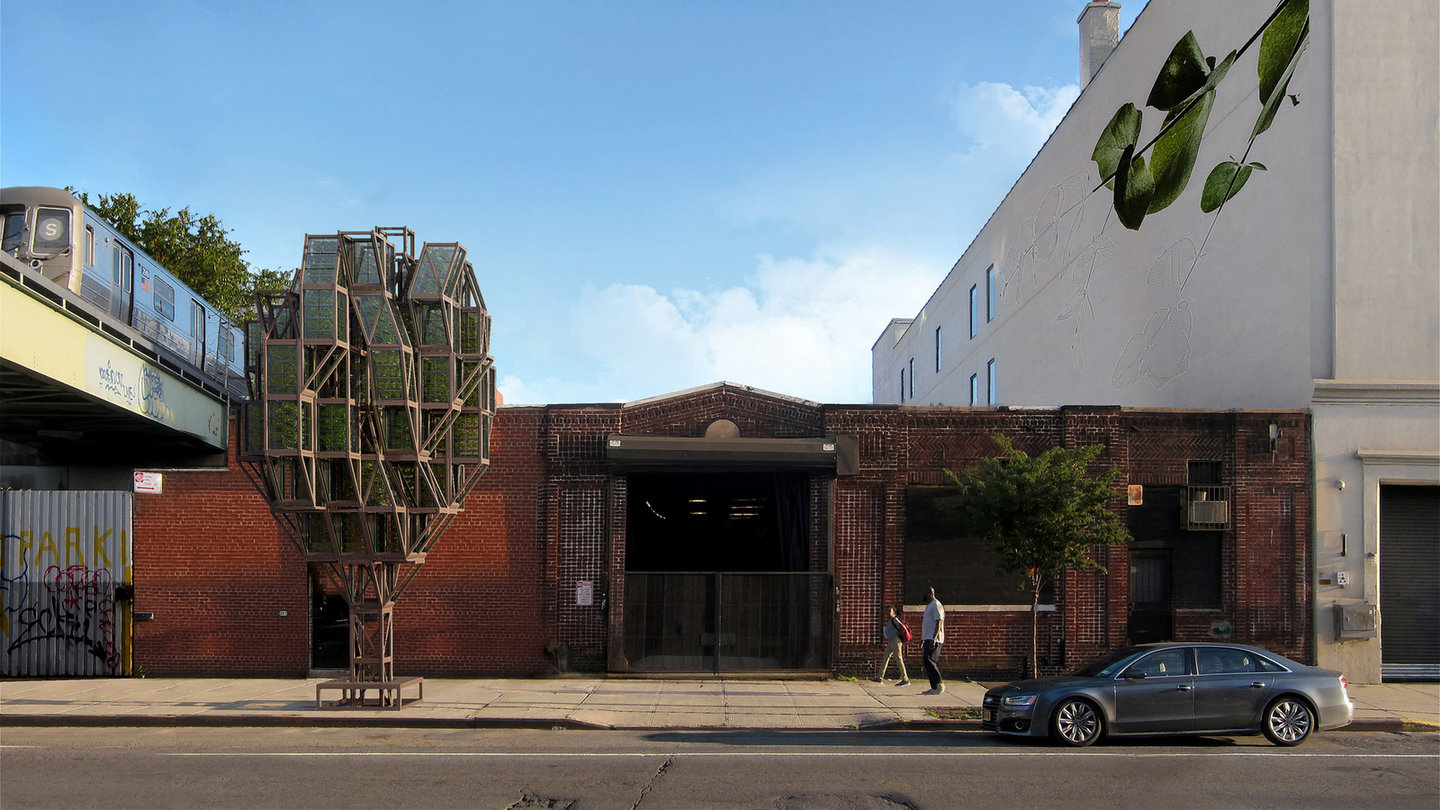

A proposal by creative agency Framlab, these modular vertical farms have been designed to provide fresh produce to low-income neighbourhoods in Brooklyn, New York.
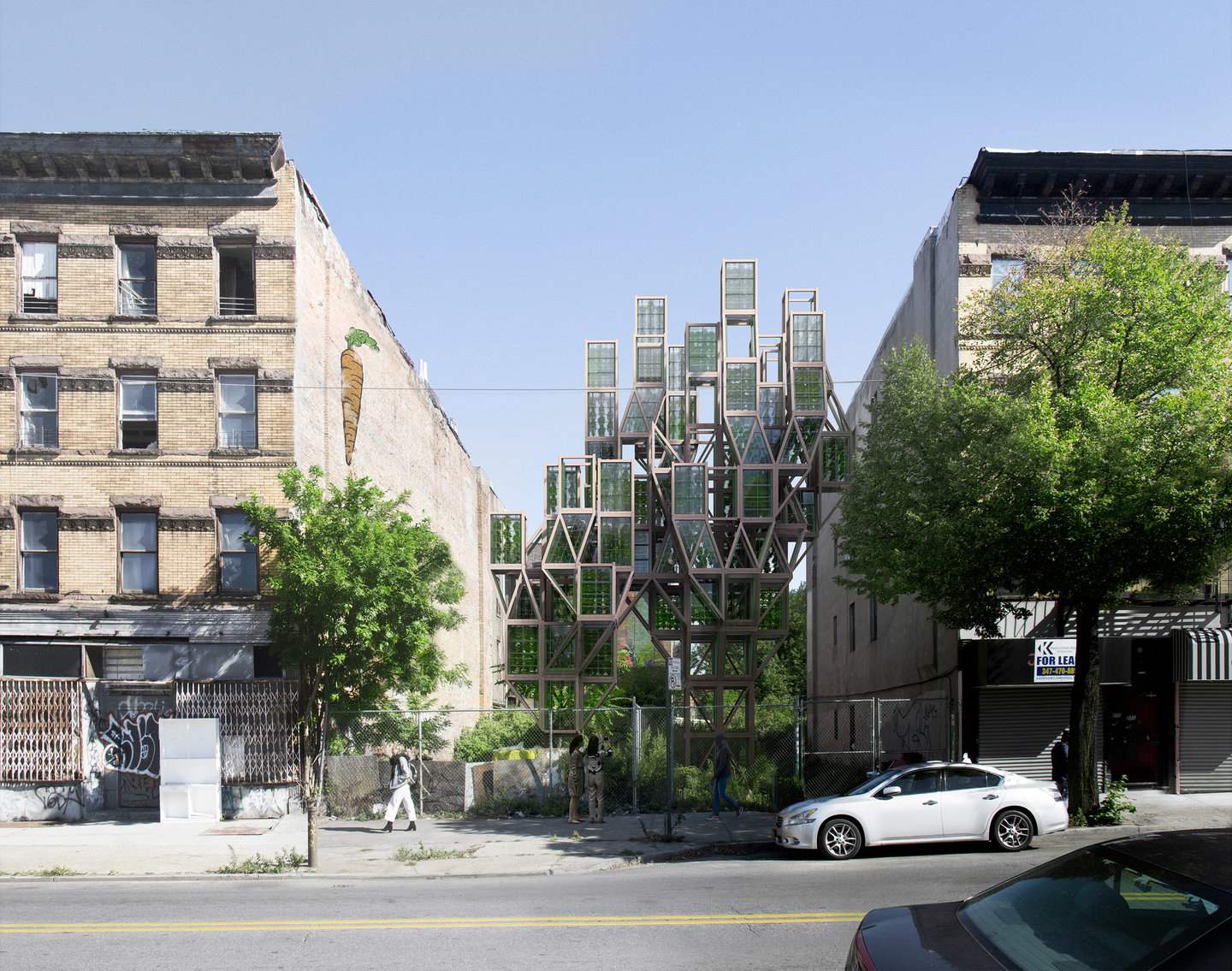

The project, known as Glasir, is made up of greenhouse-like modules that sit on top of a four square feet stand, meaning such farms can be designed to fit into very small areas within the urban environment.


There are three types of modules, Production Modules, Growth Modules and Occupation Modules, that are designed to be combined to form a functional vertical farm.
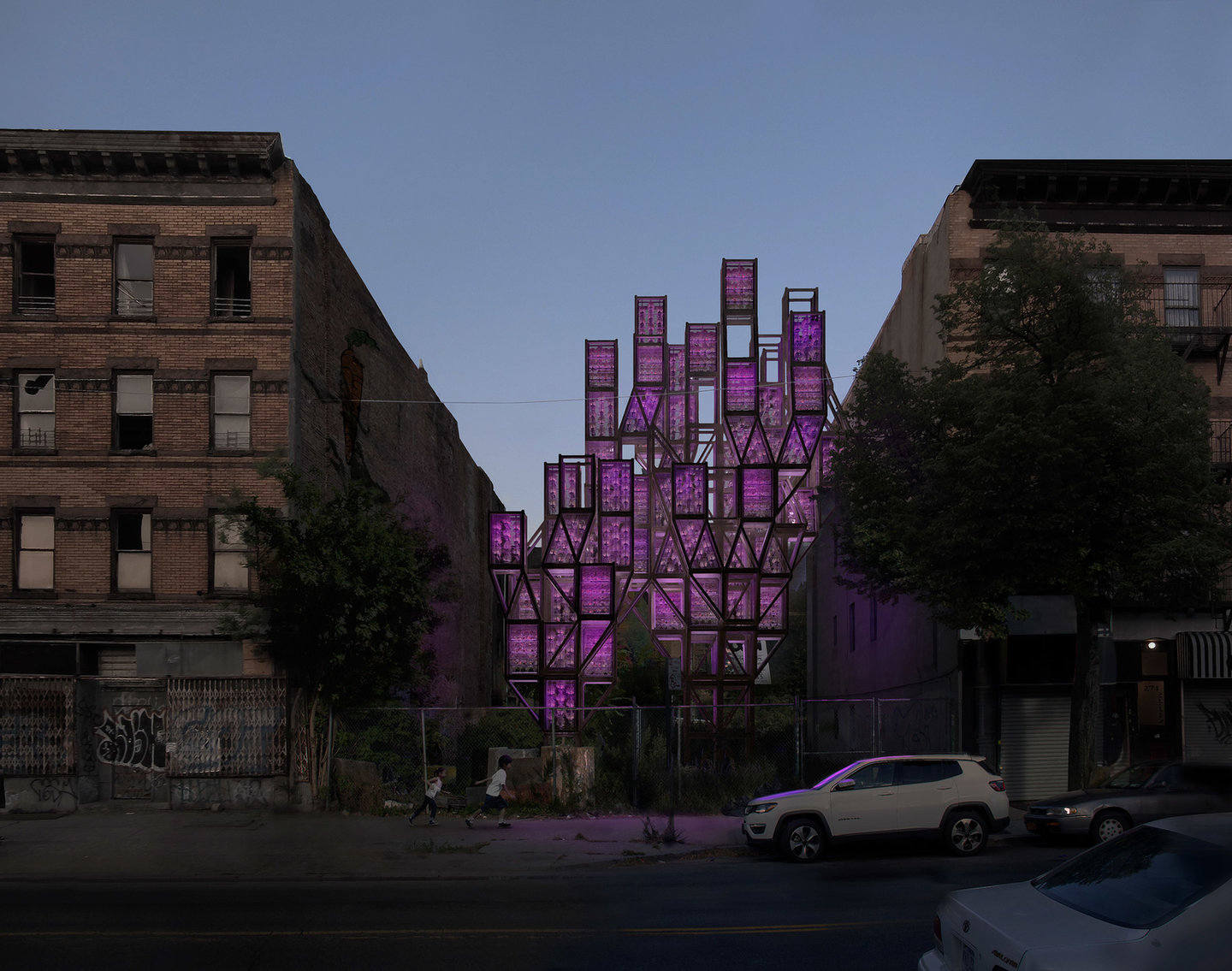

Each structure is framed with cross-laminated timber, and is designed to be arranged in a host of configurations to fit different spaces, with solar panels at the top of the structure to power each unit.
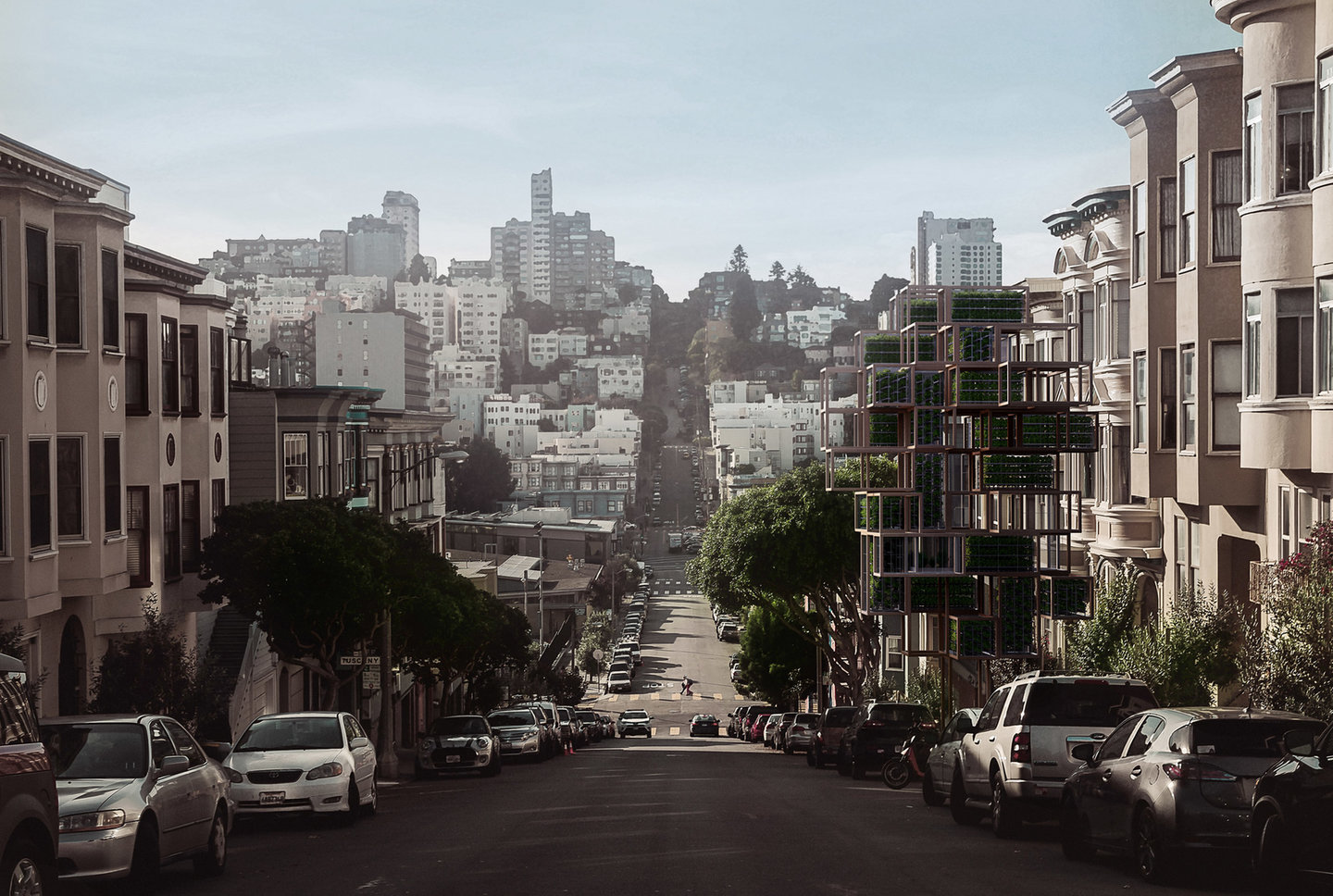
The structure grows vegetables using aeroponics, which removes the need for soil by using a mist-based process. This also enables higher nutrient absorbency than traditional growing methods.
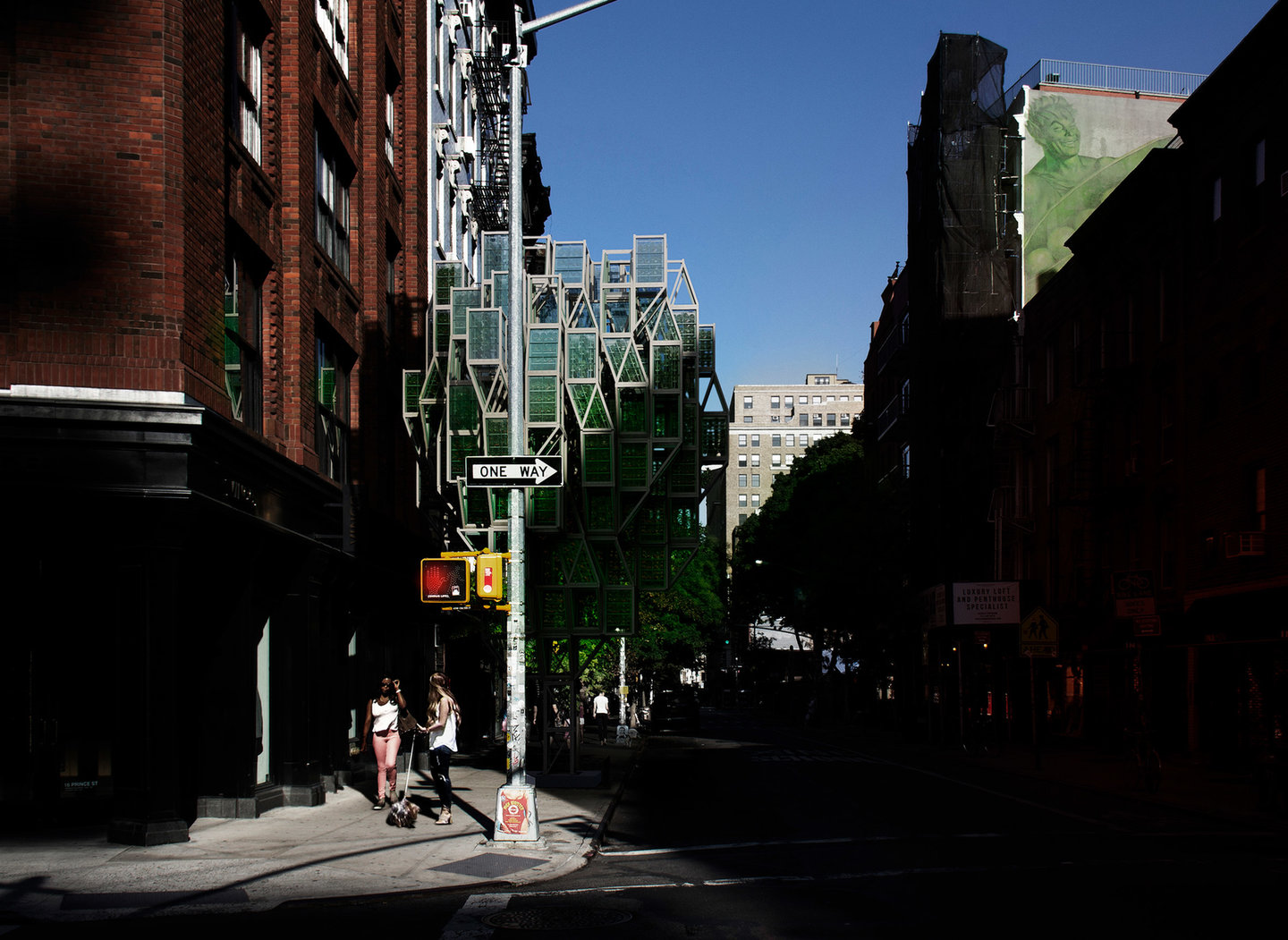
“These systems are extremely water-efficient — requiring less than 10% of the water necessitated by traditional, geoponic cultivation, while allowing the use of fertilisers and pesticides to be drastically reduced,” said Framlab.
go to top
Images courtesy of Framlab